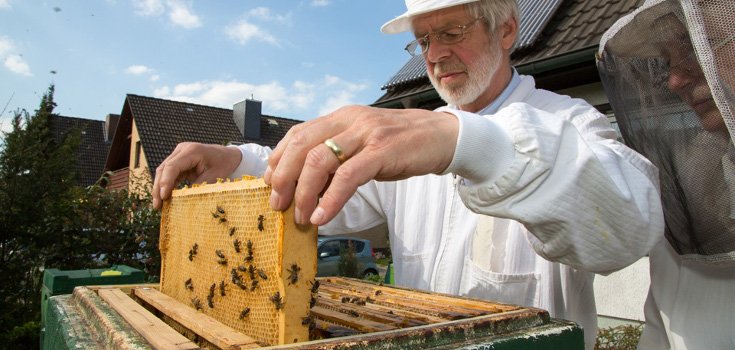Why 100,000 German Bee Keepers Want to Ban GMOs

The German Beekeepers Association (DIB), which represents almost 100,000 beekeepers, has called for a nationwide ban on GMO cultivation according to reports from the German NGO keine-gentechnik.de.
This call for a ban follows controversial legislation that has allowed EU member states to opt-out of GM cultivation even though it has been approved at the European Union level.
Though GM supporters have been angry about the new law, calling it ‘unfounded’ and stating that it ‘lacks scientific justification,’ many non-GMO supporters (including bee keepers) point to the dangers that have repeatedly come up regarding genetically modified foods. Not to mention the damage caused by herbicides and pesticides used to grow them and the decimation of pollinating (otherwise known as beneficial) insects.
At the behest of the DIB, beekeepers are hoping that the Agriculture Minister Christian Schmidt (CSU) will administer a nationwide ban. The Minister, thus far, has argued in favor of allowing each state individually decide if they will ban GMOs.
Since bees can fly up to eight kilometers to pollinate and search for food, this is likely an untenable compromise. The juxtaposition of nearby crops, even from one state to another would mean that while one has instituted a ban, a nearby state would still suffer from GM crop contamination.
What’s more, the exposure of bees to biotech chemicals like glyphosate which has been declared carcinogenic by the World Health Organization’s IARC.
The beekeepers state that this would be “environmentally and agriculturally unacceptable.”
The DIB stated:
“Bees know no borders.”
The demand for a nationwide ban on GMOs will likely be tough to uphold, according to some. Dr H.-Christoph von Heydebrand, the German Federal Ministry of Food and Agriculture, states that nationwide bans would be much harder to justify legally than regional or local bans.
Matthew Moore, a lawyer from the EU Council, agreed that it would be more possible under the law to defend national measures that “do not extend to the whole territory.”
Additional Sources:
Featured image sourced from: GM Watch

There is no credible evidence that GMOs pose a general risk to bees, or people for that matter.